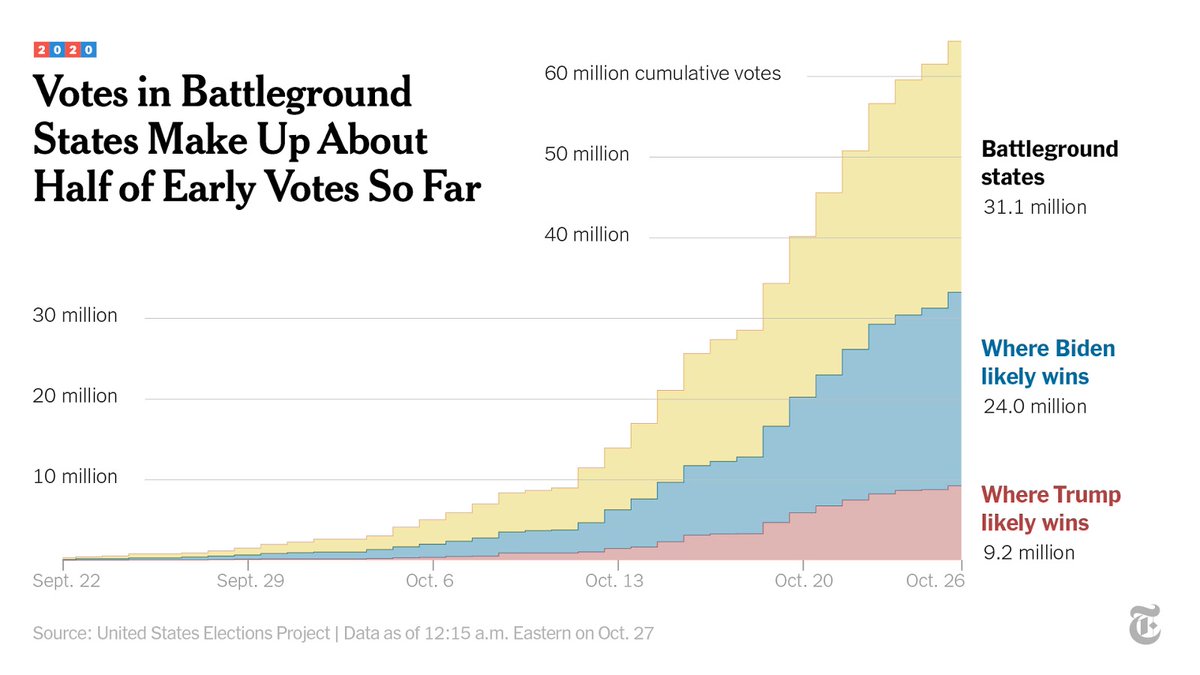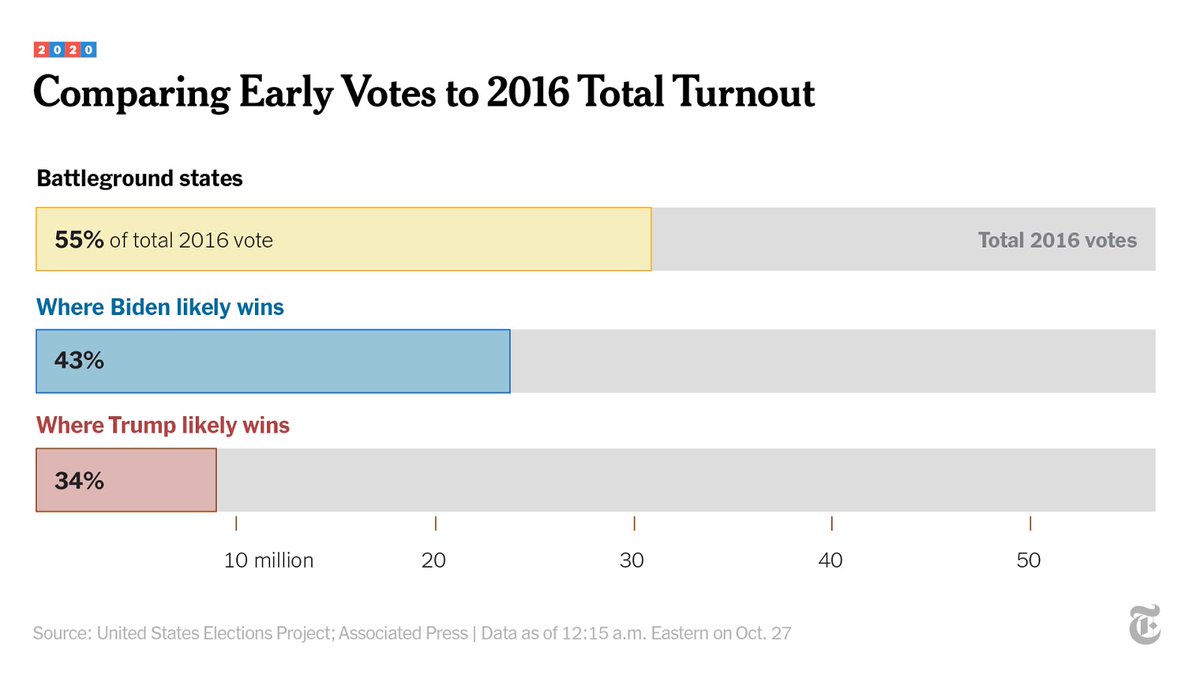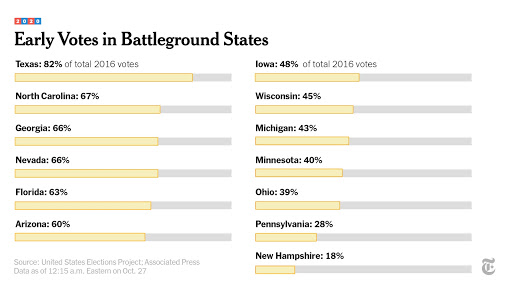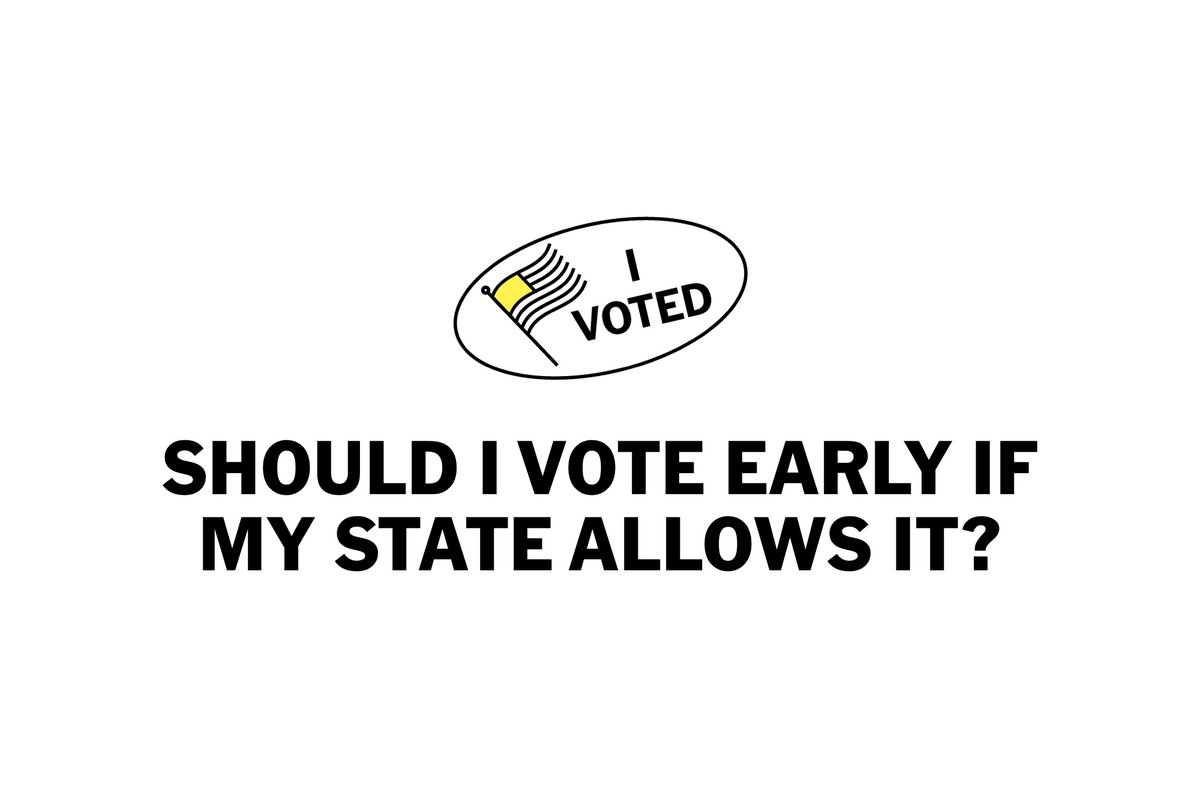
Voters from battleground states that will likely decide who wins the Electoral College have made up about half of the more than 64 million ballots that have been cast so far.
Here's our analysis of where early votes have been cast. nyti.ms/37TlXv4
Here's our analysis of where early votes have been cast. nyti.ms/37TlXv4
Voters in states Joe Biden is expected to win have outpaced those where President Trump is favored.
And early votes in battleground states outpace those in places that heavily favor either candidate. nyti.ms/37TlXv4
And early votes in battleground states outpace those in places that heavily favor either candidate. nyti.ms/37TlXv4

Early votes in the battleground states account for more than half of those states’ total votes in 2016.
Across the U.S., voters have already cast about 46% of the total vote counted in the 2016 election. nyti.ms/37TlXv4
Across the U.S., voters have already cast about 46% of the total vote counted in the 2016 election. nyti.ms/37TlXv4

Early votes in Texas, which is considered competitive this year, have already surpassed 80% of the state’s 2016 total turnout.
Early votes in Arizona, Florida, Georgia, Nevada and North Carolina account for more than 60% of their total ballots cast four years ago.
Early votes in Arizona, Florida, Georgia, Nevada and North Carolina account for more than 60% of their total ballots cast four years ago.

The virus has led many states to change voting rules, allowing millions to vote early by mail or in person.
Voter enthusiasm both for and against President Trump has fueled record-level early turnout across the U.S.
Explore more of our analysis here. nyti.ms/37TlXv4
Voter enthusiasm both for and against President Trump has fueled record-level early turnout across the U.S.
Explore more of our analysis here. nyti.ms/37TlXv4
• • •
Missing some Tweet in this thread? You can try to
force a refresh










